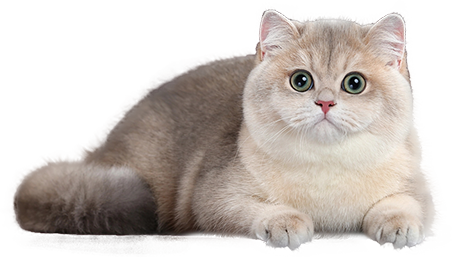Essential Guide to Nutrient-Rich Cat Food: What Every Cat Owner Should Know
When it comes to feeding your cat, understanding the role of nutrient-rich cat food is crucial for their overall health and longevity. Cats are obligate carnivores, meaning they require a diet primarily made up of animal-based proteins. The right nutrients support their growth, energy levels, and immune function. Here’s what you need to know about nutrient cat food.
**Key Nutrients for Cats**
A we
2025/01/15
When it comes to feeding your cat, understanding the role of nutrient-rich cat food is crucial for their overall health and longevity. Cats are obligate carnivores, meaning they require a diet primarily made up of animal-based proteins. The right nutrients support their growth, energy levels, and immune function. Here’s what you need to know about nutrient cat food.
**Key Nutrients for Cats**
A well-balanced cat diet should include a variety of essential nutrients. Proteins are the cornerstone of feline nutrition, providing the building blocks for muscles and tissues. Look for high-quality animal proteins, such as chicken, beef, or fish, as primary ingredients in your cat food.
Fats, particularly omega-3 and omega-6 fatty acids, are also vital for your cat's skin and coat health. They play a role in brain development and support a strong immune system. Carbohydrates should be included but in smaller amounts, as cats have a limited ability to digest them. Whole grains and vegetables can serve as good sources of carbohydrates, offering additional fiber beneficial for digestion.
Vitamins and minerals are critical too. These micronutrients support various bodily functions, from bone health to vision. For example, taurine, an amino acid, is vital for heart health and vision, making it a must-have in any high-quality cat food.
**Choosing the Right Cat Food**
When selecting nutrient cat food, it’s essential to read labels carefully. Look for products that specify “complete and balanced” nutrition, meaning they meet the standards set by veterinary nutritionists. The ingredient list is also a valuable resource; prioritize foods where real meat is listed as the first ingredient.
Consider your cat's age, weight, and activity level. Kittens require more protein and fat for growth, while senior cats may benefit from lower calories and added joint support. Always consult a veterinarian for tailored dietary recommendations based on your cat’s specific health needs.
**The Benefits of Proper Nutrition**
Feeding your cat a nutrient-rich diet can lead to a longer, healthier life. Quality nutrition can help prevent obesity, a significant issue among pets, which can lead to diabetes and joint problems. Additionally, a balanced diet supports energy levels, ensuring your cat remains active and playful.
In conclusion, selecting appropriate nutrient cat food is an investment in your pet's health. By understanding the critical components of feline nutrition, you can make informed decisions that will benefit your cat for years to come. Always prioritize quality ingredients and consult with experts to ensure your furry friend is receiving the best possible care through their diet.
**Key Nutrients for Cats**
A well-balanced cat diet should include a variety of essential nutrients. Proteins are the cornerstone of feline nutrition, providing the building blocks for muscles and tissues. Look for high-quality animal proteins, such as chicken, beef, or fish, as primary ingredients in your cat food.
Fats, particularly omega-3 and omega-6 fatty acids, are also vital for your cat's skin and coat health. They play a role in brain development and support a strong immune system. Carbohydrates should be included but in smaller amounts, as cats have a limited ability to digest them. Whole grains and vegetables can serve as good sources of carbohydrates, offering additional fiber beneficial for digestion.
Vitamins and minerals are critical too. These micronutrients support various bodily functions, from bone health to vision. For example, taurine, an amino acid, is vital for heart health and vision, making it a must-have in any high-quality cat food.
**Choosing the Right Cat Food**
When selecting nutrient cat food, it’s essential to read labels carefully. Look for products that specify “complete and balanced” nutrition, meaning they meet the standards set by veterinary nutritionists. The ingredient list is also a valuable resource; prioritize foods where real meat is listed as the first ingredient.
Consider your cat's age, weight, and activity level. Kittens require more protein and fat for growth, while senior cats may benefit from lower calories and added joint support. Always consult a veterinarian for tailored dietary recommendations based on your cat’s specific health needs.
**The Benefits of Proper Nutrition**
Feeding your cat a nutrient-rich diet can lead to a longer, healthier life. Quality nutrition can help prevent obesity, a significant issue among pets, which can lead to diabetes and joint problems. Additionally, a balanced diet supports energy levels, ensuring your cat remains active and playful.
In conclusion, selecting appropriate nutrient cat food is an investment in your pet's health. By understanding the critical components of feline nutrition, you can make informed decisions that will benefit your cat for years to come. Always prioritize quality ingredients and consult with experts to ensure your furry friend is receiving the best possible care through their diet.
Key words:
Previous Page:
Contact Us
Address:
No. 22, Jingxing Road, Economic and Technological Development Zone, Nantong, Jiangsu Province.
E-mail:
panghuiqiang@metzpet.com
Contact Phone:
+86-18862996617














